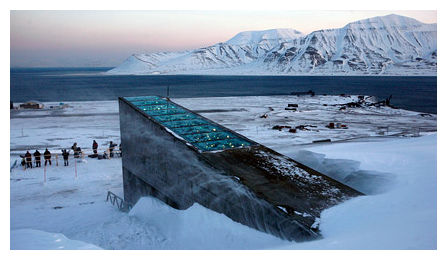The Svalbard Global Seed Vault, a converted mine, is located about 800 miles from the North Pole in Arctic Norway.
An Australian delegation of farmers and scientists next week will deposit 301 samples of peas and 42 rare chickpeas in the vault, intending to protect the plant species from extinction by climatic or man-made events.

According to the Svalbard Global Seed Vault website, the facility's main purpose is "to store duplicates ('back ups') of all seed samples from the world's crop collections. Permafrost and thick rock ensure that, even in the case of a power outage, the seed samples will remain frozen."
"It's as safe as any place on earth, actually," Gregson said. "It's built deliberately 60 meters above current sea level, which is above any predicted sea level rise, built into solid rock.
"It's in a permanent permafrost, so the temperature will never rise above about minus 20 degrees Celsius (minus 4 degrees Fahrenheit) and it is patrolled by polar bears. As far as we can tell, it is the safest place on earth."
The vault, pretty much a giant natural freezer, opened in 2008 after the Norwegian government funded its $9 million construction as a "service to the world."
It stocks more than 250 million seeds in total.
Seed banks in other parts of the world have been destroyed by natural disasters and human intervention.
Banks in Afghanistan and Iraq were lost during war, and typhoons have wiped out rice banks in the Philippines.
Australia's seed banks have been threatened recently by lack of funding and massive floods that swept across the country.
"We hope we will never need the seeds from the Svalbard vault, but the way the world is going, we probably will at some stage in the next 50 to 100 years," Gregson said.



Reader Comments
to our Newsletter